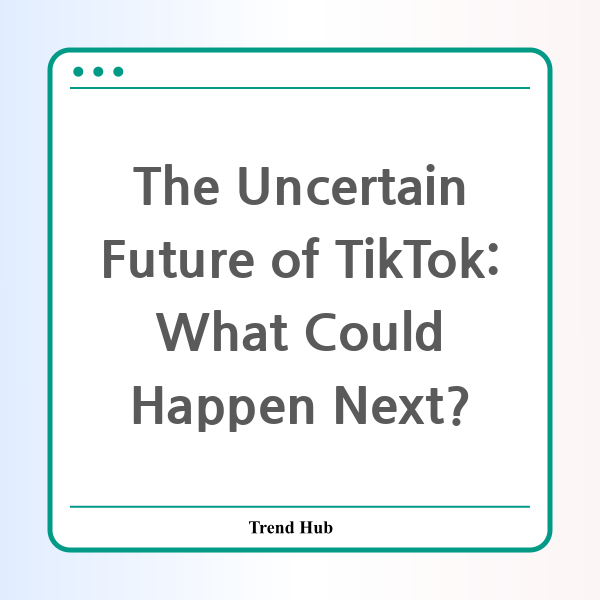* This website participates in the Amazon Affiliate Program and earns from qualifying purchases.

With a potential ban looming over TikTok in the United States, many users and creators are left wondering: what happens next? TikTok has amassed more than 170 million users in the U.S., becoming one of the most popular social media platforms, rivalling giants such as Instagram and Facebook. But concerns about data privacy and national security could result in a seismic shift in the social media landscape.
The backdrop of this situation is complex. Following President Joe Biden's decision to leave the future of TikTok to President-elect Donald Trump, who previously advocated for its ban, the application finds itself teetering on the brink of removal from the U.S. market. The law signed by Biden required the app's Chinese-based parent company, ByteDance, to divest the platform by January 19 or face a ban. As this date fast approaches, the social media community is buzzing with speculation about the implications of a TikTok ban.
Interestingly, this isn’t the first time we have seen a major regulation on TikTok. India banned TikTok in June 2020 over security concerns, suddenly cutting off access for its 200 million users overnight. What can the United States learn from India's experience?
Following India’s ban on TikTok, users swiftly migrated to alternative platforms. Instagram saw a significant spike in users as it introduced Reels, its short-form video feature that captured the attention of former TikTok enthusiasts. In contrast, TikTok’s absence created an opportunity for platforms like YouTube to launch their own versions of short videos, known as YouTube Shorts. As seen in India, the landscape can adapt quickly, forcing brands and individuals alike to rethink their engagement strategies.
So, how will American users react should TikTok face a ban? First, a surge in alternative platforms is likely. Apps like Xiaohongshu, known as RedNote, are already gaining traction as TikTok substitutes, showcasing that users are eager to find new spaces for their creative expression.
Moreover, we must consider the cultural implications of losing such a vibrant platform. TikTok has served as a cultural hub, influencing everything from music trends to social movements. With millions of influencers having built their brands on TikTok, a sudden ban would not just affect individual users but also disrupt industries reliant on this new form of digital marketing.
While the fate of TikTok in the United States remains uncertain, it is clear that the social media marketplace is highly dynamic and capable of rapid transformation. Just as India’s experience shows, adaptation is crucial in the face of regulatory challenges. Users may need to embrace new methods of sharing content and connecting with audiences while brands will need to rethink their strategies to stay relevant in a TikTok-less world.
As we await the final decision regarding TikTok's future, one thing is certain: the social media landscape is ever-evolving, and with change comes new opportunities. Stay tuned as we continue to monitor developments and explore the shifting dynamics of today's digital age.
* This website participates in the Amazon Affiliate Program and earns from qualifying purchases.